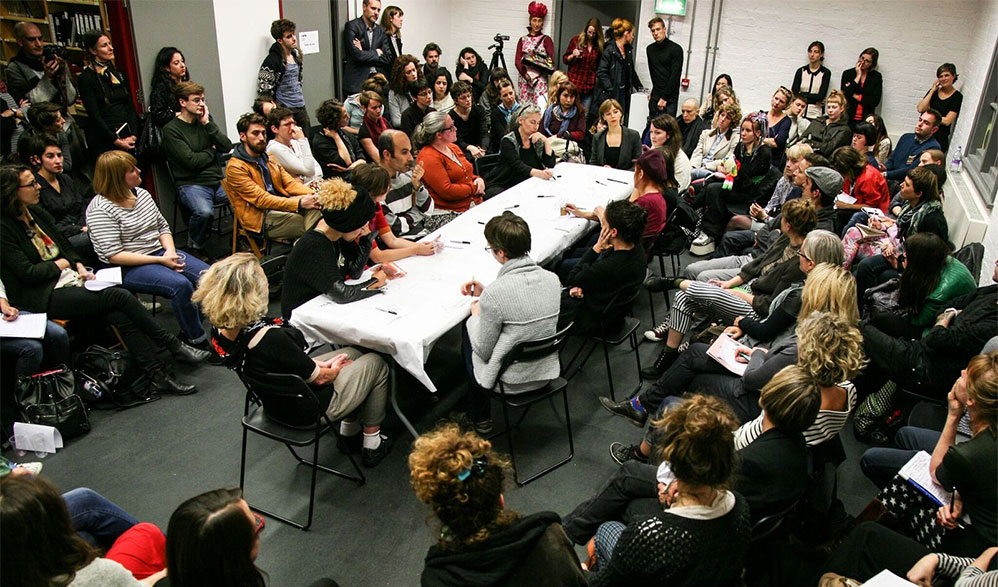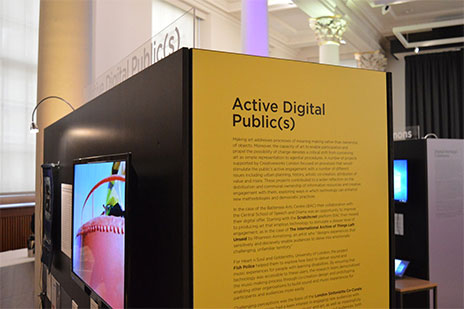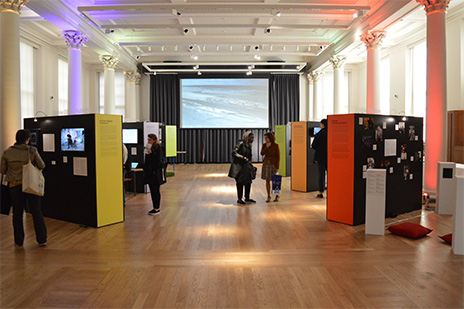London’s Digital EconomyThe Digital Economy Strand (LDE) was concerned with the digital dimension of knowledge exchange from arts and humanities research to the creative industries. The research explored the ‘digital cultures’ which pervade the interpretation of digital in society. How can the integration of creative and design thinking into the digital creative industries help them to thrive and have sustainable futures? Test your lady luck with caça niqueis online gratis. The researchers wished to understand the wider context of cultures of creativity in digital innovation, especially the integration of art and design perspectives in sustaining innovation. Core team
Alda Terracciano is Post Doctoral Research Assistant for the Digital Economy Strand, she is an academic, artist and activist. Her deep-seated interest in relational art, the use of new technologies to establish creative forms of engagement between cultural organisations, creative industry companies and audiences, and the advancement of current thinking on digital creative economy has been at the centre of her research and artistic practice. She is particularly interested in the potential of digital technologies to accelerate processes of democratisation in arts and society and the formation of digital heritage commons in g-local urban cultures. Alda is also Honorary Research Associate at University College London and Artistic Director at ALDATERRA Projects.
Geraint A. Wiggins studied Mathematics and Computer Science at Corpus Christi College, Cambridge, and holds PhDs in Artificial Intelligence and in Musical Composition, from the University of Edinburgh. He is Professor of Computational Creativity in the Department of Computing at Queen Mary University of London, where he leads the School of Electronic Engineering and Computer Science and the Computational Creativity Lab. He is Associate Editor (English) of Musicae Scientiae, the journal of the European Society for the Cognitive Sciences of Music, a consulting editor of Music Perception and an editorial board member of the Journal of New Music Research. Dan is a Lecturer in Creative & Social Computing at Goldsmiths, University of London. After a PhD in Experimental Particle Physics, he turned to using the Internet as a platform for positive social change. He is a co-founder of Social Innovation Camp and on the board of Bethnal Green Ventures, a technology accelerator for social startups. Dan has created digital innovation initiatives in a range of organisations including the NHS and Amnesty International, where he led the first Amnesty delegation to the Internet Governance Forum. His recent work has been with small organisations & communities, using participatory rapid prototyping as a way to tap in to the potential of the new digital cultures. This includes leading Social Innovation Camps in Kosovo in partnership with Unicef’s Innovation Lab. His current research includes participatory citizen science, the social impact of the Internet of Things, and the challenges for digital culture and society in a post-Snowden environment (for which he co-created the London CryptoFestival). He blogs at internet.artizans.
Chris is a member of the Centre for Commercial Law Studies (CCLS). He joined the Centre in 1987 and is responsible for the University of London LLM courses in Information Technology Law, Internet Law, Electronic Banking Law and Telecommunications Law. Chris has published widely on many aspects of computer law and research in which he was involved led to the EU directives on electronic signatures and on electronic commerce. From 1997 to 2000, Chris was Joint Chairman of the Society for Computers and Law, and in 1997-8 he acted as Specialist Adviser to the House of Lords Select Committee on Science and Technology. Chris participated as an Expert at the European Commission/Danish Government Copenhagen Hearing on Digital Signatures, represented the UK Government at the Hague Conference on Private International Law and has been an invited speaker at OECD and G8 international conferences. He is a former Director of CCLS, and from 2004 to 2009 was Academic Dean of the Faculty of Law & Social Sciences.
Evelyn is a Director of The Culture Capital Exchange and Head of the Knowledge Exchange Programme within Creativeworks London. She joined LCACE, The Culture Capital Exchange’s predecessor, in 2005, working initially as Cultural Development Manager at Queen Mary, University of London and then as its Senior Manager across the partnership. She specialises in developing strategy and curating events, festivals and other frameworks in which to bring together researchers and cultural/creative sector practitioners around areas of common concern and purpose, often in contexts that span a range of disciplines. Previous posts include: Director of Lighthouse, Brighton, Director, Metapod, Head of Exhibitions and Cultural Events, Light House Media Centre, Wolverhampton. Evelyn is on the Advisory Group of the Doctoral Training Centre in Media Arts Technologies at Queen Mary, University of London. She was board member and Chair, respectively of Furtherfield between 2005 and 2013 and has been advisor to Arts Council England in a number of fields regionally (Photography and New Media Arts) and nationally (Interdisciplinary Arts). About the researchHow do small cultural companies best understand their digital assets, how can they create appropriate metadata around them and how are they thinking about recombining such assets? How do we enhance interactions between technologists and the humanities to challenge the limits of media technologies and vice versa? How can integrating digital technologies and thinking digitally into cultural and creative companies help them to thrive and have sustainable futures? How do we understand the digital in the wider context of cultures of consumption? We will examine the opportunities of the changing digital landscape to meet the creative needs of creators, publishers, distributors and users. How do we enhance interactions between expert organisations like the BBC, British Library and National Archives and local industries to best add to London’s wider cultural and creative economies? How can we further explore the role of the digital and its operation in the material? What is the relationship of the digital to material? For example, the BBC and its partners are currently working towards the delivery of a digital public space, a strategic project that is conceived of as a new layer of the internet which makes publicly owned digital material available for non-commercial and commercial use; the British Library, which has just entered into an agreement with Google to digitise some of its holdings, also wants to explore similar issues. So, understanding what London’s changing digital landscape means for these institutions and digital creative companies. What is the role of the ‘Cloud’ in future maintenance of digital assets? What is the relationship between the digital and the material experience of the object and what does this mean for the emerging context for co-curation and what are the Intellectual Property issues that this raises? What role does cloud computing have in the future for the maintenance of digital assets and how do we ensure that we do not lose our digital memories as technology changes? With specialists such as Reed and Gibson, we will work closely with IBM, the Intellectual Property Institute and the new Centre for Copyright and new Business Models to address these rapidly evolving questions. The research explores the ‘digital cultures’ which pervade the interpretation of digital in society. How can the integration of creative and design thinking into the digital creative industries help them to thrive and have sustainable futures? We wish to understand the wider context of cultures of creativity in digital innovation, especially the integration of art and design perspectives in sustaining innovation. Key themesCulture HacksInnovation with digital technologies continues to emerge, but increasingly there are efforts to help nurture such innovation. Large structured project approaches are increasingly giving way to short prototyping activities, called hackathons, which are more encouraging of creativity and often challenge orientated. The hackathon and its variants are increasingly emerging in the available literature, both as reported sources of innovation and as the topic of field reports. We wish to understand their key components and origins, and to trace why they are effective in encouraging the creativity required for digital innovation. We will draw on personal experience in attending and organising hackathons, in addition to the available literature, to understand hackathon culture, including how it can best be interacted with to facilitate innovation. Creative GardensCan we move beyond simply networking creative individuals to establishing diverse communities of practice for innovation through discursive methods? Furthermore, can we digitise their creativity activities within an integrative socio-cultural collaborative technology platforms that could then support distributed innovation? First, we wish to understand the complexity of creative cultures from the perspective of design innovation, including how to nurture creativity activities in what we call Creative Gardens. Specifically, how they could grow, diverge, and combine, being cultivated to nurture emergent, disruptive, collaborative innovation. Then, we will consider the digitisation of Creative Gardens from the perspective of digital culture. Specifically, the tenets of Creative Gardens as dynamic and innovative communities. This includes considering the challenges and opportunities around digitisation, the influences around the connectivity with knowledge cultivation, and the potential for distributed innovation as collective intelligence to utilise diverse expertise. Resistance to DigitisationDigitisation can lead to the creation of new aspects to digital cultures. However, digitisation of any cultural artefacts can result in the loss of context (or aura) in which it originally existed. Digital reproduction has created the potential for any cultural artefact to be seen anywhere, which inevitably has an effect on its meaning. For example, digital technologies of reproduction (e.g. photography, film, audio recordings, etc) uproot cultural artefacts from their situational contexts. Distance, space, perspective, horizon, history, geography, etc, all create context. So, understanding why cultural artefacts are resistant to digitisation will elucidate the effectiveness of approaches to digitisation. Appreciating the critical aspects of context that could be lost: for example, ceremony around cultural artefacts that are physical objects. Also, the potential and scope for hybrid approaches (embedded technologies). Digital MagicDigital innovation and creativity is becoming akin to a kind of ‘digital magic’ as the rate of innovation continues to make ever more intangible ideas possible. The impact of digital technologies accentuate this phenomenon through the potential for global scale, fast prototyping and deployment to exemplify innovation, and pervasiveness through embedding digital technologies. We wish to understand the distinct perceptions of the potential of digital technologies in society, and the impact of developers imposing their views (i.e. encouraging the perception that society does not require information privacy). Strand's Research OutputsLondon’s Digital Ecologies of Collaboration – Catalogue Download PDF (218Mb) Using Intellectual Property in the Creative Industries (White Paper) Author: Research Strand: London’s Digital Economy Date: May 2015 Abstract: The research on which this White Paper reports was undertaken as part of the Creativeworks London project, funded by the Arts and Humanities Research Council. The aim of the research was to investigate how creators exploit intellectual property outside the traditional structure of formal contracts, to identify their working practices and their normative stance on those uses (which might not match the law’s normative position), and to discuss with them what legal and non-legal mechanisms might be helpful in undertaking these uses more effectively. The role of the internet in opening up new ways to use creative works was a major talking point throughout. Hackathons: Why Co-location? Author: Research Strand: London’s Digital Economy Date: January, 2015 Abstract: In this position paper we outline and discuss co-location as a significant catalyst to knowledge exchange between participants for innovation at hackathon events. We draw on surveys and empirical evidence from participation in such events to conclude that the main incentives for participants are peer-to-peer learning and meaningful networking. We then consider why co-location provides an appropriate framework for these processes to occur, and emphasize the need for future research in this area. Creating Cultures of Innovation Author: Gerard Briscoe (Creativeworks London / Queen Mary University London) Research Strand: London’s Digital Economy Date: June, 2014 Abstract: We consider the Creating Cultures of Innovation (CCoI) action research programme being delivered by the Glasgow School of Art (GSA), in partnership with the Institute of Directors (IoD) and the University of Glasgow Business School (UGBS), to explore the role that higher education might play in improving skills utilisation in the workplace. The premise of the initiative is to explore the use of design thinking in improving performance, innovation and economic productivity in participating companies. The project involves working with leaders to harness creativity within their organisation and enable workplace innovation through collaboration. It is being delivered through a series of integrated workshops for a cross-functional team at each participating company. These pilots were run over a period of two years, delivered at approximately monthly intervals, with interim tasks for the team to take back and apply in the workplace, ensuring a ripple effect of skills and learning from the core group across the rest of the organisation. After summarising the approach taken, we consider three case studies of organisations from the pilot of the programme; Scott & Fyfe, a technical textile manufacturer; Schuh, a high street shoe retailer and Cairngorm Mountain Ltd., a not-for-profit organisation who manage recreational facilities at the top of Cairngorm mountain in Aviemore. We conclude by considering the effectiveness of the approach, and its potential for other industries, including the Digital Creative Industries. Digital Innovation: The Hackathon Phenomenon Author: Research Strand: London’s Digital Economy Date: May 2014 Abstract: Innovation with digital technologies continues to emerge, but increasingly there are efforts to help nurture such innovation. A hackathon is an event in which computer programmers and others involved in software development collaborate intensively over a short period of time on software projects. These hackathons are encouraging of experimentation and creativity, and can be challenge orientated. From holding large numbers of these events, the hackathon phenomenon has emerged as an effective approach to encouraging innovation with digital technologies in a large range of different spaces (music, open data, fashion, academia, and more). We consider the origins and diverse format of hackathons, leading us to a high-level classification of the types of hackathons that occur. We also consider the results of a commercial survey conducted of a 150 hackathon participants, as well as two case studies of hacakthon events we have both observed and participated. We then discuss the potential of hackathons, including common general principles that we have observed in their format. We conclude by considering the potential and value of hackathons, especially in providing an opportunity for people to meet and collaborate to create new links in the medium to long term, beyond the short term focus of the event. Also, the potential for hackathons for networking in new spaces, including such as the emerging Culture Hacks. Digital Innovation: The Hackathon Phenomenon Author: Gerard Briscoe, Queen Mary University London Research Strand: London’s Digital Economy Abstract: Innovation with digital technologies continues to emerge, but increasingly there are efforts to help ‘nurture’ such innovation. Large structured project approaches are increasingly giving way to short prototyping activities called hackathons. These hackathons are more encouraging of creativity and are often challenge orientated. From holding large numbers of these events, the ‘hackathon phenomenon’ has emerged as an effective approach to innovation with digital technologies in a large range of different spaces (music, open data, fashion, academia, and more). Creative Gardens, The Knowledge Exchange Conference 2013 Authors: Gerard Briscoe, Queen Mary University London Joseph Lockwood, Glasgow School of Art Research Strand: London’s Digital Economy Abstract: Can we move beyond simply networking creative individuals to establishing diverse communities of practice for innovation through discursive methods. Furthermore, can we digitise their creativity activities within an integrative socio-cultural collaborative technology platform that could then support distributed innovation. First, we consider the complexity of creative cultures from the perspective of design innovation, including how to nurture creativity activities in what we call Creative Gardens. Specifically, how they could grow, diverge, and combine,being cultivated to nurture emergent, disruptive, collaborative innovation. Then, we consider the digitisation of Creative Gardens from the perspective of digital culture. Specifically, the tenets of Creative Gardens as dynamic and innovative communities. This includes considering the challenges and opportunities around digitisation, the influences around the connectivity with knowledge cultivation, and the potential for distributed innovation as collective intelligence to utilise diverse expertise. Download PDF – LINK NOT WORKING Events and activities
Curator and Art Director: Dr. Alda Terracciano First launched at the Creativeworks London Festival 2016 at King’s College London, London’s Digital Ecologies of Collaboration was staged at the AHRC Common Ground event 2016 at York University. 29 April 2016, London’s Digital Ecologies of Collaboration, Curator and Art Director: Dr. Alda Terracciano The installation encompassed five areas of critical enquiry and documented 20 projects supported between 2012 and 2016 through the CWL Creative Voucher and Creative Entrepreneur-in-Residence schemes. Digital Transnationalism looked at cultural interconnectivity across geographical boundaries; Digital Heritage Commons explored the way in which communities think about their environment, past, aspirations and futures; Democratisation and Digital Space looked at dynamic networks revealing new subjectivities and agency in divided societies; Active Digital Public(s) reflected on the process of meaning making of art and digital technologies through artistic co-creation and public engagement; Digital Tools of Innovation showcased the potential for digital to overturn old systems of production and consumption via new forms of distribution of resources and relationship to the natural world. 29 April 2016, ‘A Long Table Conversation on Digital Heritage Commons’,
Resistance to Digitisation: Curated Memory Cards, StoryStorm Workshop, Authors: Abstract: Creative Garden, Digital Economy Conference 2013 – Poster Authors: Abstract: Creative Gardens, Digital Shoreditch 2013 – Presentation Authors: Abstract: Installation29th April 2016, Creativeworks London Festival, King’s College London Download PDF (218Mb) Encompassing five areas of critical digital enquiry this installation documented 20 projects supported by Creativeworks London between 2012 and 2016, funded via the Creative Voucher and Creative Entrepreneur-in-Residence schemes. Digital transnationalism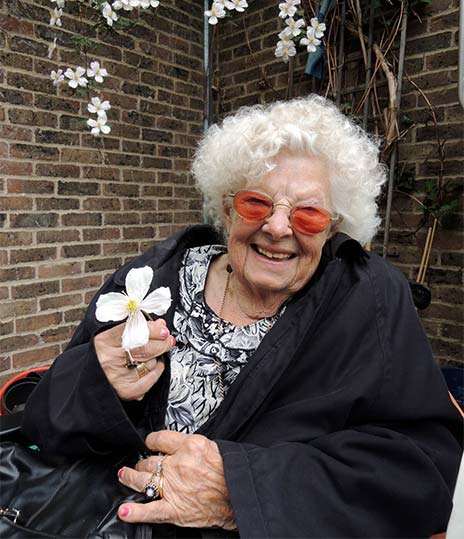 Song Catchers: archiving and promoting oral culture in London Song Catchers: archiving and promoting oral culture in London
In light of mass migration, and the global promotion of digital platforms, cultural interconnectivity extends across geographical boundaries, as cultural / territorial boundaries progressively lose their static terms of reference. This critical area of research was explored with its social and political implications of global co-operation and actions of individuals beyond the nation-state. Featured:
Digital heritage commons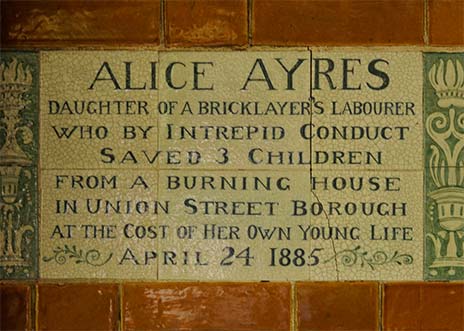 Bringing the past into the present Bringing the past into the present
The creation of Digital Heritage Commons responds to the need for respect and mutual co-operation between the diverse populations of large metropolitan areas. It is a sign of common understanding across cultural perspectives. The question is how, why and on what grounds can Digital Heritage Commons transform the way people think about themselves, their communities, their environment, their pasts, their aspirations and their futures? What role might history and the archive play? Featured:
Democratisation and digital space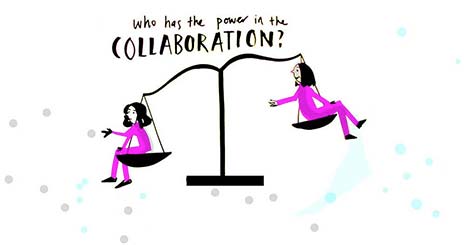 Towards a knowledge landscape of the fashion and textile industry Towards a knowledge landscape of the fashion and textile industry
This area explored the impact of new power relations manifested by dynamic networks in the capillaries of everyday life and asks what role is played by digital technologies in the construction of our subjectivities and supporting agency in divided societies. Featured:
Active digital public(s)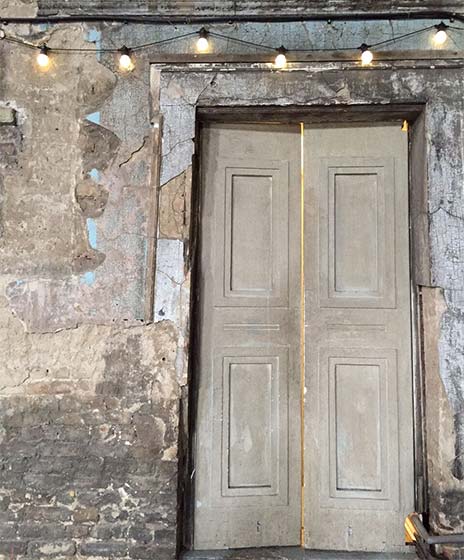 London Sinfonietta Co-Curate London Sinfonietta Co-Curate
Art production addresses the process of meaning making and digital technologies have enhanced its capacity to enable participation, shifting its focus from representation to co-production. This area showcased the distribution and communal ownership of information resources, as well as stimulating methodological developments that acknowledge artistic co-creation and attribution of value. Featured:
Digital tools of innovation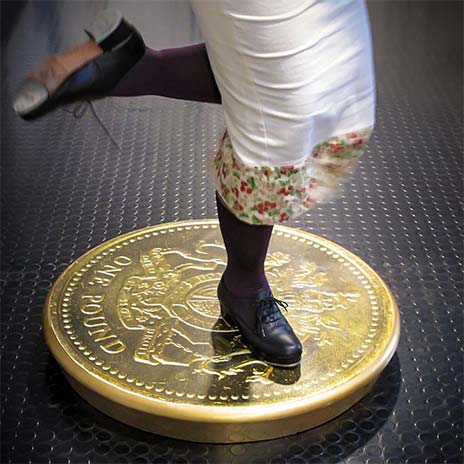 Money No Object Money No Object
Computational Capital points to a re-thinking of commodities as integrated products made of chunks of subjective time re-bundled through computational processes. Fundamentally, capital is still underpinned by human time (labor, attention, cognition, neuro-power). Selected projects showcased the potential for digital innovations to overturn old systems of production and consumption, redefining the attribution of value and distribution of resources and our relationship to each other and the natural world. Featured:
Credits:
|
Creativeworks London is one of four Knowledge Exchange Hubs for the Creative Economy funded by the Arts and Humanities Research Council (AHRC) to develop strategic partnerships with creative businesses and cultural organisations, to strengthen and diversify their collaborative research activities and increase the number of arts and humanities researchers actively engaged in research-based knowledge exchange.
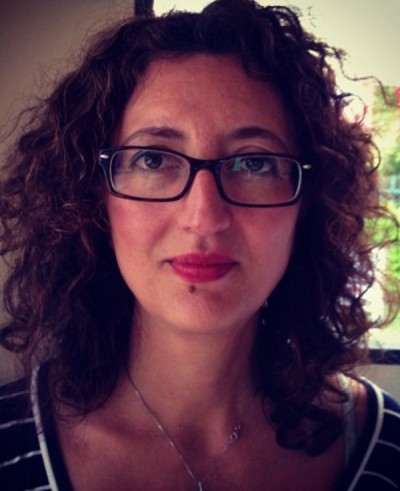 Dr. Alda Terracciano
Dr. Alda Terracciano Professor Geraint A. Wiggins
Professor Geraint A. Wiggins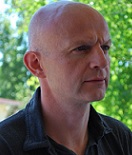
 Professor Chris Reed
Professor Chris Reed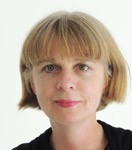 Evelyn Wilson
Evelyn Wilson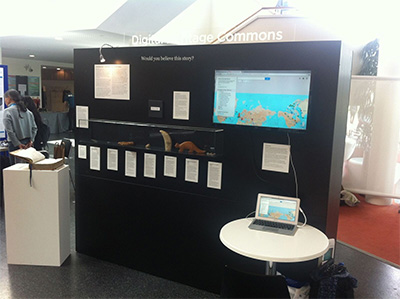 21 June 2016, London’s Digital Ecologies of Collaboration,
21 June 2016, London’s Digital Ecologies of Collaboration,